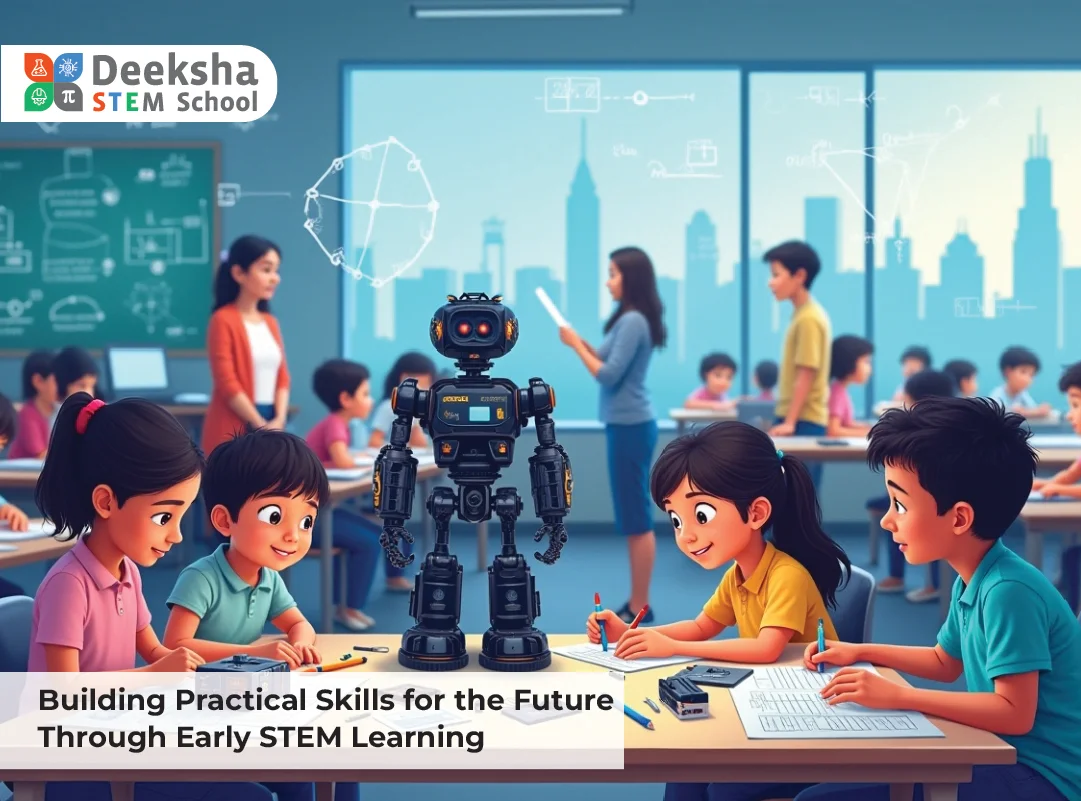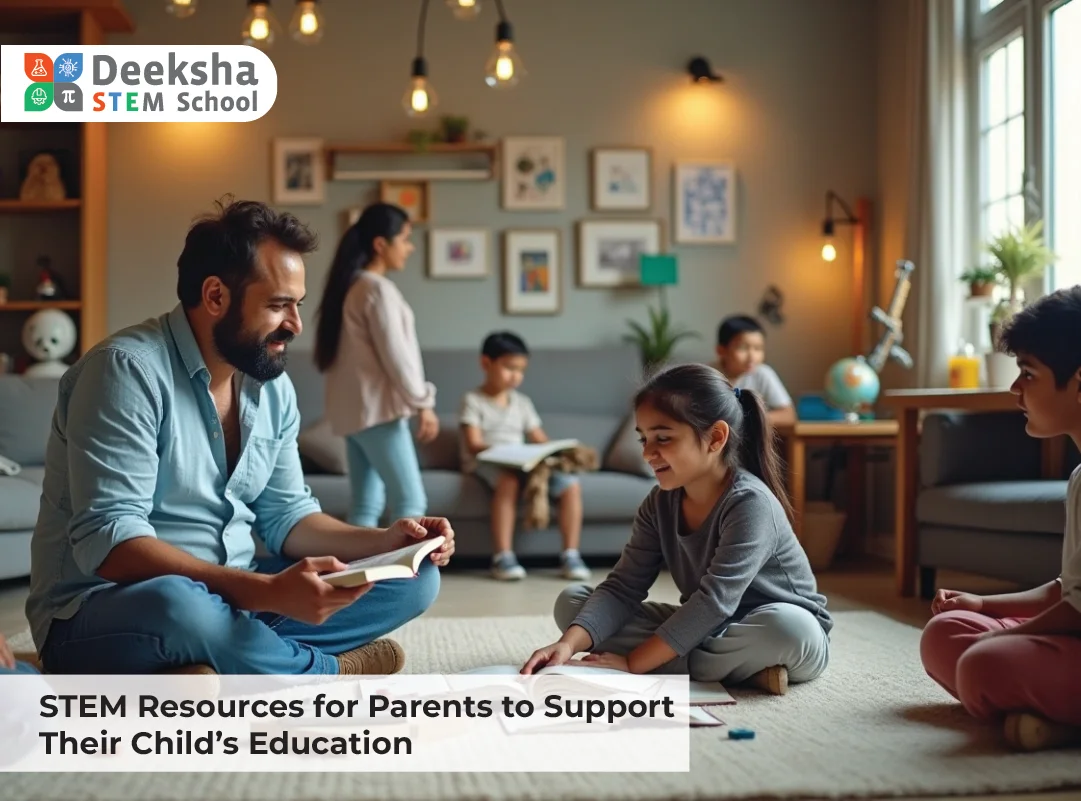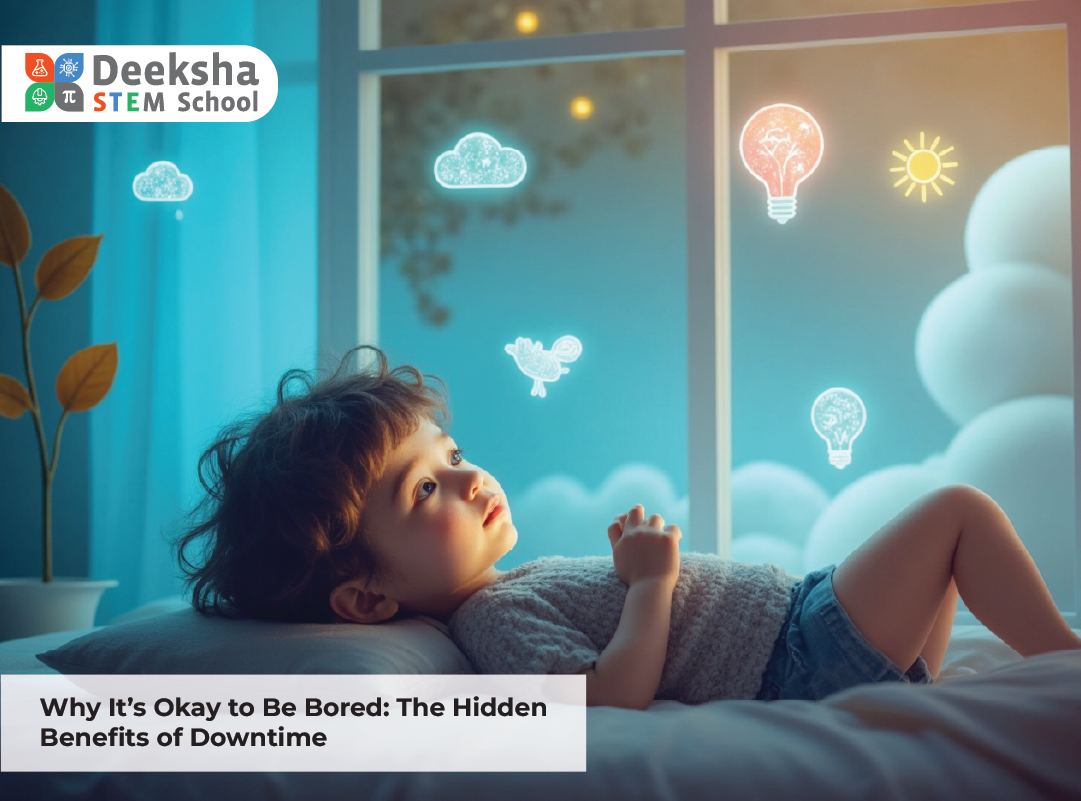Critical Thinking, Creativity, and Collaboration: The Three Skills Your Child Needs for the Future

Introduction
The world is changing faster than ever, and the future requires children to have skills that go beyond traditional academic knowledge. In 2025, it’s not just about grades; it’s about preparing children for a future that demands adaptability, innovation, and effective teamwork. The three skills that stand out as the most crucial for future success are critical thinking, creativity, and collaboration.
These skills not only enhance a child’s academic performance but also prepare them for the challenges and opportunities they will encounter in the workforce, personal life, and beyond. In this blog, we will explore why these skills are so important and how you can help your child develop them to succeed in the future.
Why Critical Thinking is Essential for the Future
What is Critical Thinking?
Critical thinking involves analyzing facts, evaluating different perspectives, and making informed decisions based on evidence and reasoning. It’s not just about memorizing facts—it’s about understanding and questioning information to come to logical conclusions.
Why Critical Thinking is Important
- Adapting to Change: The future is unpredictable. Children will need to assess situations quickly and make sound decisions based on available information.
- Problem-Solving: In a rapidly changing world, the ability to think critically will help children approach complex problems with a clear, logical mindset.
- Avoiding Bias: Critical thinking encourages children to examine their assumptions and avoid jumping to conclusions without fully understanding the issue at hand.
How to Cultivate Critical Thinking in Children
- Encourage Questions: Ask your child open-ended questions that require them to think critically and analyze the situation, such as “What would happen if…?” or “How can we solve this problem?”
- Debates and Discussions: Involve your child in discussions where they can express their opinions and consider other perspectives. This teaches them how to reason and evaluate different viewpoints.
- Problem-Based Learning: Give your child challenges that require them to use reasoning and logic to find solutions. This could involve puzzles, case studies, or real-life problems to solve.
The Role of Creativity in Future Success
What is Creativity?
Creativity is the ability to think outside the box, come up with new ideas, and explore innovative solutions. It’s not just about artistic talent—it’s about using imagination to approach problems in unique ways.
Why Creativity is Important
- Innovation and Invention: As technology advances, the ability to create new ideas and invent solutions will become even more valuable. Creative individuals are the ones who will drive innovation.
- Adaptability: Creativity helps children adapt to new situations and find solutions when faced with unfamiliar problems.
- Self-Expression: Creativity allows children to express their ideas, emotions, and perspectives, helping them understand themselves better and communicate effectively with others.
How to Foster Creativity in Children
- Encourage Exploration: Give your child the freedom to explore different activities—whether it’s painting, writing, building, or designing. The more they explore, the more they will expand their creative abilities.
- Promote Play and Imagination: Play-based learning is one of the best ways to stimulate creativity. Allow your child to engage in activities like role-playing, storytelling, and games that require imagination.
- Support Risk-Taking: Encourage your child to try new things and experiment, even if it means failing. Creativity grows from trial and error, and failure is often an important part of the process.
Collaboration: The Key to Success in a Connected World
What is Collaboration?
Collaboration is the ability to work effectively with others toward a common goal. In today’s interconnected world, collaboration is not just a nice-to-have skill—it’s a must-have.
Why Collaboration is Important
- Teamwork: In the future, children will often work in teams, whether in school projects, workplace settings, or community initiatives. Collaboration teaches them how to communicate, cooperate, and solve problems together.
- Diverse Perspectives: Collaboration encourages children to consider and integrate different viewpoints, leading to better decision-making and more creative solutions.
- Social and Emotional Skills: Working with others helps children develop empathy, communication skills, and emotional intelligence, which are critical in both professional and personal relationships.
How to Encourage Collaboration in Children
- Group Activities: Involve your child in group activities, whether it’s in school, extracurriculars, or at home. Activities like group discussions, team sports, or collaborative art projects can help children develop teamwork skills.
- Teach Negotiation and Compromise: Collaboration often requires compromise and negotiation. Encourage your child to listen to others, express their ideas clearly, and find common ground when working with peers.
- Model Collaborative Behavior: Show your child how to work with others by collaborating with them in various tasks, whether it’s cooking a meal, working on a project, or solving a problem together.
How Deeksha STEM Schools Support These Skills
At Deeksha STEM Schools, we place a strong emphasis on developing critical thinking, creativity, and collaboration through our engaging curriculum and interactive learning environments. We believe these three skills are essential for future success, which is why we integrate them into everything we do.
Encouraging Critical Thinking
Our STEM-based curriculum encourages students to think critically through problem-based learning, case studies, and scientific experiments. We ask students to analyze data, evaluate different outcomes, and make informed decisions.
Fostering Creativity
We offer a variety of creative activities—from coding and robotics to arts and design—that allow students to think outside the box and innovate. Our creative programs help students develop a love for learning and challenge them to find new solutions to real-world problems.
Promoting Collaboration
Through group projects, team activities, and collaborative learning environments, Deeksha STEM Schools teach students how to work effectively with others. We encourage communication, cooperation, and empathy, ensuring that students develop the social and emotional skills they need to succeed in the future.
FAQs
1. Why are critical thinking, creativity, and collaboration important for my child’s future?
- These skills prepare children for the challenges of the future by encouraging them to think independently, solve problems creatively, and work effectively with others.
2. How can I develop these skills in my child at home?
- Encourage your child to ask questions, engage in creative activities, and work on group projects. Providing opportunities for independent thinking, imagination, and teamwork can help develop these skills.
3. How does Deeksha STEM Schools foster these skills in students?
- Deeksha STEM Schools integrate critical thinking, creativity, and collaboration into our curriculum through project-based learning, hands-on STEM activities, group discussions, and creative programs that promote independent thinking and teamwork.
Conclusion
As we move toward a more complex, interconnected world, the skills of critical thinking, creativity, and collaboration will be more important than ever. These skills not only help children excel in academics but also prepare them for success in their careers and personal lives. By nurturing these abilities early on, parents and educators can help children thrive in the future, no matter where their paths lead.
At Deeksha STEM Schools, we are committed to providing a learning environment that fosters these essential skills. Explore our programs today to ensure your child is prepared for the challenges of tomorrow.




